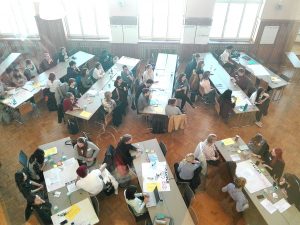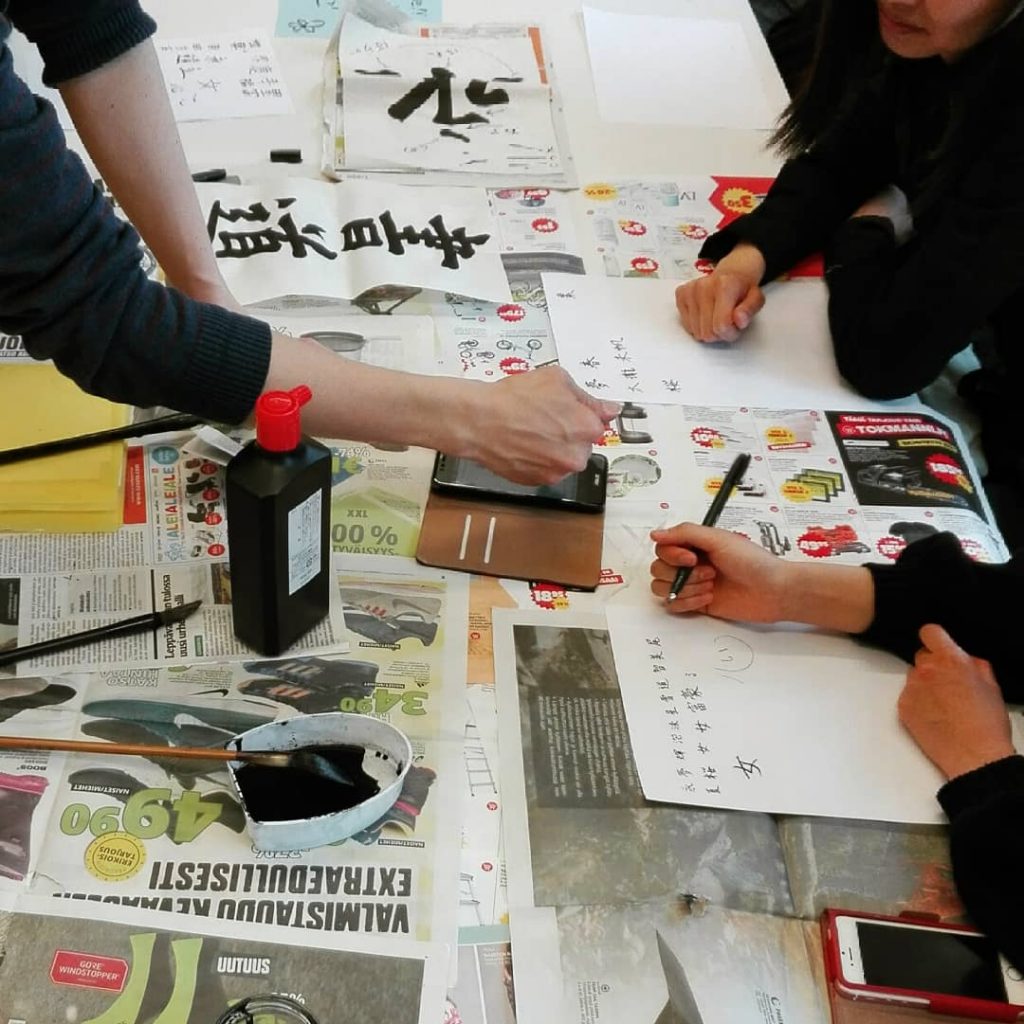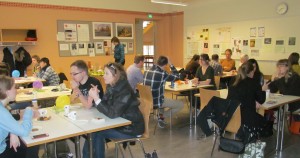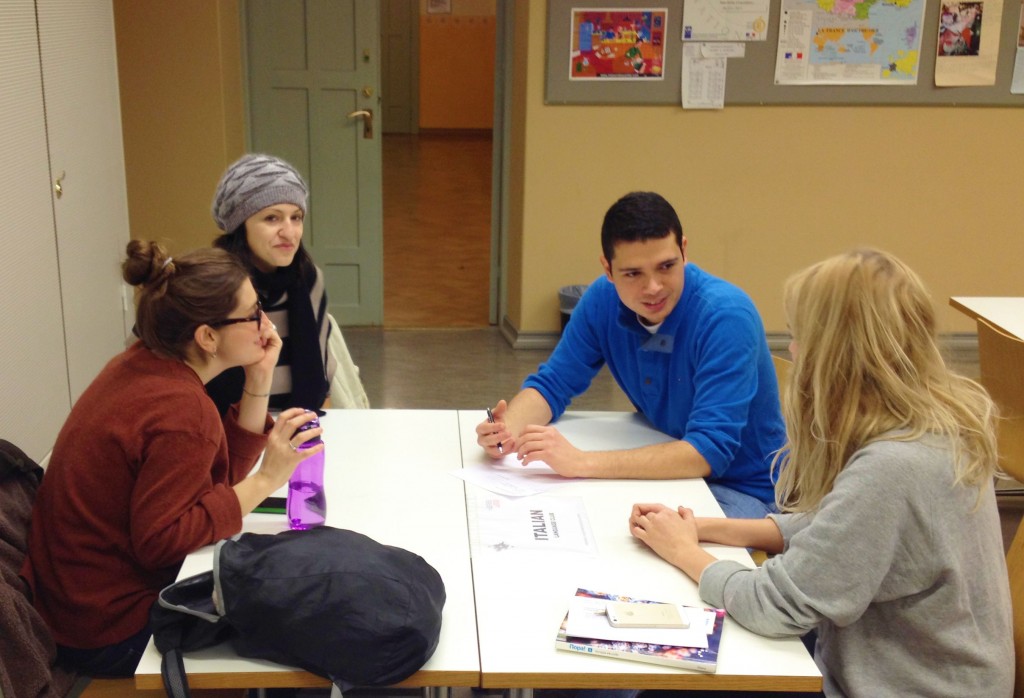The Asian Language clubs have been an important part of the internationalization at home work coordinated by the Support for Learning and Teaching Unit (also known as OOTU). International exchange students from China, Japan and Korea have organized amazing, relaxed and informal language workshops for local students who are eager to learn a variety of aspects related to Chinese, Japanese and Korean language and culture. There is another post in this blog titled Hands on internalization that covers topics and feedback from previous face-to-face Asian Language Clubs in more detail. I recommend reading that article if you are not familiar with the club events.
In spring 2020, it was not possible to carry out the Asian Language Clubs the usual way, due to the coronavirus epidemic and the limitations that followed. The University of Helsinki was forced to declare an exceptional situation, which meant that people could not meet at the Language Centre and share their thoughts in a physically shared place such as a classroom. Therefore, there was an obvious need to get people connected online, but also some troubling questions: Would international students have the energy and the will to host the meetings? How many would participate the online meetings? Which ways of sharing information, ideas and materials might work best online? Despite the preliminary anxiety about taking on the challenge, I was fairly optimistic in finding answers to the above questions together with the Asian club leaders.
Firstly, I approached the active club leaders who had already carried out two face-to-face meetings with the local students at the Language Centre before the exceptional situation. I was very pleased to hear when Shengyu Wang, Sayaka Fukada and Hyemin Park were willing to try out hosting a meeting online in Microsoft Teams. We set up a testing meeting in Teams and I showed them some basic functions that they could do both on their laptops or mobile phones: e.g. how to share the screen, use the chat during a video call and share files if needed. We also discussed possible themes or topics for the meeting, but in the end I gave the hosts and hostesses the freedom to make the final choice independently.
Secondly, it was time to invite participants to the Chinese, Japanese and Korean online language clubs. The Teams scheduled meetings proved to be helpful in this process, so I created one main channel and three sub-channels to enable simultaneous video calls. In picture one below you can see the Chinese groups’ scheduled meeting in Teams.
 Picture 1. Screenshot from Teams.
Picture 1. Screenshot from Teams.
I filled in the participants’ emails to each scheduled meeting and after typing in a brief description of the event created the event. This way all active participants of the previous Asian Language Clubs received an automatic calendar invitation to the meetings. Two days before the meeting I sent a reminder, just wanting to make sure students had received the invitation and understood that the meeting would be online for the very first time. By the time I sent the reminder I could see from the scheduled meetings’ details who had accepted, declined or not responded to the invitation. I was again pleased to see that many local students were willing and had time to participate.
Thirdly, it was time for the big day everyone had been waiting for, 3 April 2020 at 14:15 local time (GMT+2) we were ready to start the video calls. I was lucky to have the OOTU unit’s long-time assistant and trainee Anna-Lena Krug assisting me in starting the events. She joined the Korean group and helped keeping small talk going on until the Korean meeting could start after some technical difficulties with Hyemin Park’s laptop microphone. While Anna-Lena stayed in the Korean group, I visited the Chinese and Japanese groups’ online calls. The latter group had quite experienced Japanese speakers among them, so they were able to both discuss and write in the chat during their call. The Chinese group was hosted not only by Shengyu Wang but also his volunteering Chinese friend Qin Yu. Their idea was to first show the participants a number of short videos describing Chinese cities with narration, and the possibility to turn on or off subtitles, and then discuss them in more detail.
 Picture 2. Screenshot from the Chinese video call chat.
Picture 2. Screenshot from the Chinese video call chat.
However, sharing the screen did not work with a participant, so we decided to move the meeting to Zoom. Both the main host and the participant had used Zoom before, so the transition did not take too long and they could continue with the original topic, even though the focus turned more on the host telling about the cities (e.g. their climate and population).
After a while I headed back to the Korean and Japanese video calls in Teams and wrapped up the meetings together with the hosts/hostesses and participants around 15:45 local time (GMT+2). I asked the participants how they felt about the online meeting and the response that I got from them was encouraging. I had a short chat or talk with the hosts/hostesses too and they had positive feelings about the meetings. It was also great to hear that the last Asian Language Club meeting, 17 April 2020, could be arranged in Teams or Zoom (Chinese group).
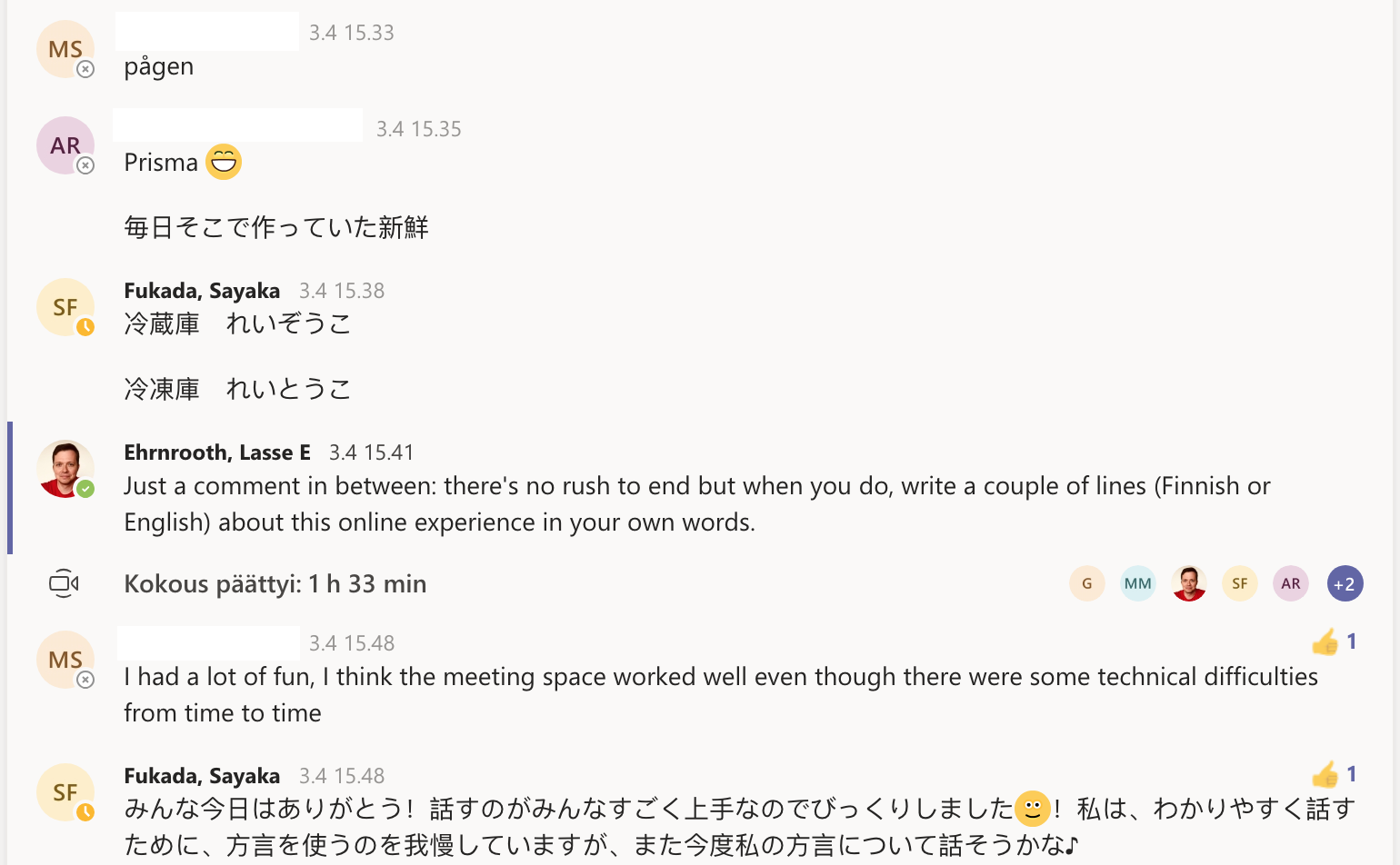
Picture 3. Screenshot from the Japanese group’s chat.
Text and pictures: Lasse Ehrnrooth
